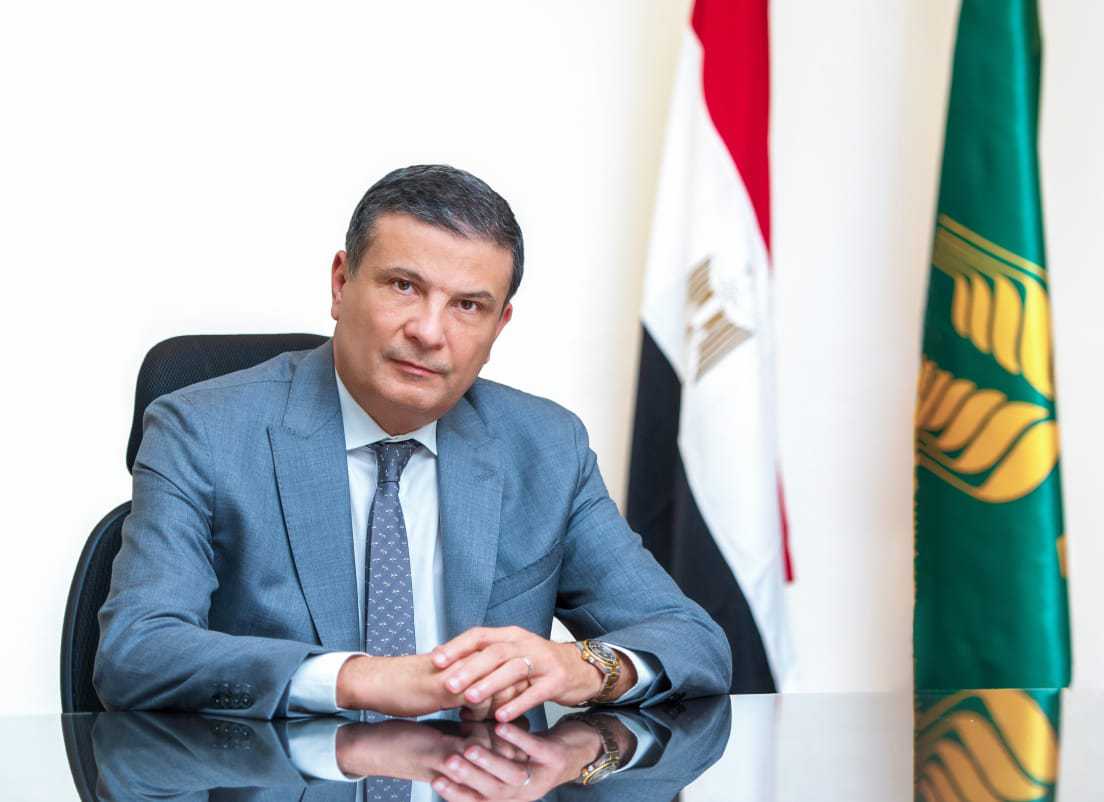The Minister of Agriculture and Land Reclamation, Alaa Farouk, has unveiled a comprehensive strategy to enhance Egypt’s agricultural industry, focusing on boosting livestock production and enhancing animal health.
The new strategy aims to revitalize Egypt’s livestock sector by addressing key challenges and improving operations. Partnering with government banks, the strategy will provide funding to farm owners and milk collection centers to upgrade their facilities to international standards.
Farouk emphasized the critical role of food processing and value addition in dairy products, highlighting its potential to enhance national revenue, decrease importing, and strengthen the financial well-being of both farmers and dairy producers.
According to a 2021 study by the Egyptian Society of Nutrition and Feeds, the livestock sector in Egypt faces significant challenges, including inadequate fodder, declining animal health, disease outbreaks, climate change, and limited water resources.
Egypt produces 48 million tons of green fodder, 29.6 million tons of roughage, and 6.5 million tons of raw and concentrated feed materials annually, as of 2021. To meet the nutritional needs of livestock, an additional 9 million tons of corn, 3 million tons of cereals, and 1 million tons of wheat bran are required.
Widespread infectious diseases and ineffective immunization programs are among the problems hindering Egypt’s efforts to improve livestock health, according to the 2021 study. The country’s veterinary infrastructure is also lacking, with limited local vaccine and medicine production and inefficient services, further complicating efforts to control and prevent disease outbreaks.
On another note, changing weather patterns resulting from climate change disrupt animals’ feeding and energy balance, resulting in lower reproductive rates and diminished milk production and quality. These environmental stresses further compromise animals’ immune systems, increasing their vulnerability to diseases and overall health issues.
Farouk explained that the strategy aims to address these issues by improving the genetic quality of livestock to enhance both meat and milk yields, providing advanced veterinary care, and streamlining licensing processes, all while maintaining strict adherence to biosafety regulations.
Supported by a 2020 report by the Food and Agriculture Organization of the United Nations (FAO), the livestock sector remains essential to Egypt’s agricultural output; it accounts for 37.5 percent and plays a crucial role in providing important proteins and micronutrients, which are essential for food security and overall nutrition.
According to FAO, Egypt will need to significantly increase its production of animal protein to ensure food security and self-sufficiency. As of 2020, the nation has 5.1 million cattle and buffaloes, 5.4 million sheep, 4 million goats, 46 million laying hens, and 1.4 billion broilers, along with asses, equines, and camels—however, statistics on the animal population can vary significantly depending on the source.
FAO states that the production of national meats like beef, poultry, and fish must rise by 2050 to ensure food security and self-sufficiency. Means need to rise by approximately 109 percent, while milk production should surge by 290 percent and eggs by 162 percent, compared to current levels.
To achieve these targets, policies should promote sustainable intensification by shifting from extensive to semi-intensive and intensive production systems, rather than merely increasing productivity within current systems, the FAO report reveals. These policies must align with the National Sustainable Development Strategy “Egypt 2030” and embrace an approach that tackles the environmental and public health challenges associated with the proposed changes.
Addressing all these issues, Farouk assured that the ministry is fully committed to supporting livestock production, particularly in dairy farming, as part of its broader strategy to uphold quality standards, ensure food security, and safeguard public health.







Comments (0)